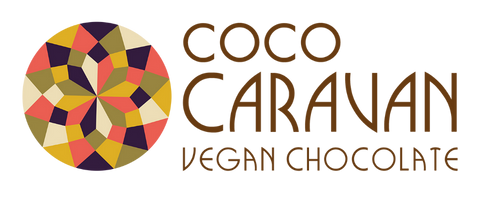- Chocolate Shop
- El Ceibo - Bolivia 90 %
El Ceibo - Bolivia 90 %

El Ceibo - Bolivia 90 %
In the lush Alto Beni region of Bolivia, more than 1,200 smallholder farmers come together through El Ceibo, a pioneering cooperative founded in 1977. Born from twelve grassroots cooperatives, El Ceibo has long championed organic cacao cultivation, aiming to improve the livelihoods of its members while preserving Bolivia’s rich agroforestry traditions. Working alongside the Programme for Implementation of Agro Ecology and Forestry (PIAF), El Ceibo promotes sustainable farming systems where cacao grows alongside fruit, timber, and medicinal plants.
Originally home to native criollo, nativo, and silvestre cacao varieties, Alto Beni saw an influx of hybrid varieties in the 1960s, introduced for their higher yields. Today, nine local genetic types are cultivated through a dedicated nursery system. Post-harvest, fermentation techniques are carefully tailored to each variety—native criollos ferment for 3–4 days, while hybrids take 7–9 days. Beans are fermented in wooden crates, turned regularly, and dried to a precise 7.5% humidity, ensuring consistent quality.
The result is a cacao with a vibrant flavour profile: it opens with floral notes, blossoms into bright pineapple and red fruit, and finishes with the warmth of almonds, hazelnuts, and a hint of tropical wood—an expression of Alto Beni’s biodiversity and the farmers’ deep care.
In the lush Alto Beni region of Bolivia, more than 1,200 smallholder farmers come together through El Ceibo, a pioneering cooperative founded in 1977. Born from twelve grassroots cooperatives, El Ceibo has long championed organic cacao cultivation, aiming to improve the livelihoods of its members while preserving Bolivia’s rich agroforestry traditions. Working alongside the Programme for Implementation of Agro Ecology and Forestry (PIAF), El Ceibo promotes sustainable farming systems where cacao grows alongside fruit, timber, and medicinal plants.
Originally home to native criollo, nativo, and silvestre cacao varieties, Alto Beni saw an influx of hybrid varieties in the 1960s, introduced for their higher yields. Today, nine local genetic types are cultivated through a dedicated nursery system. Post-harvest, fermentation techniques are carefully tailored to each variety—native criollos ferment for 3–4 days, while hybrids take 7–9 days. Beans are fermented in wooden crates, turned regularly, and dried to a precise 7.5% humidity, ensuring consistent quality.
The result is a cacao with a vibrant flavour profile: it opens with floral notes, blossoms into bright pineapple and red fruit, and finishes with the warmth of almonds, hazelnuts, and a hint of tropical wood—an expression of Alto Beni’s biodiversity and the farmers’ deep care.
